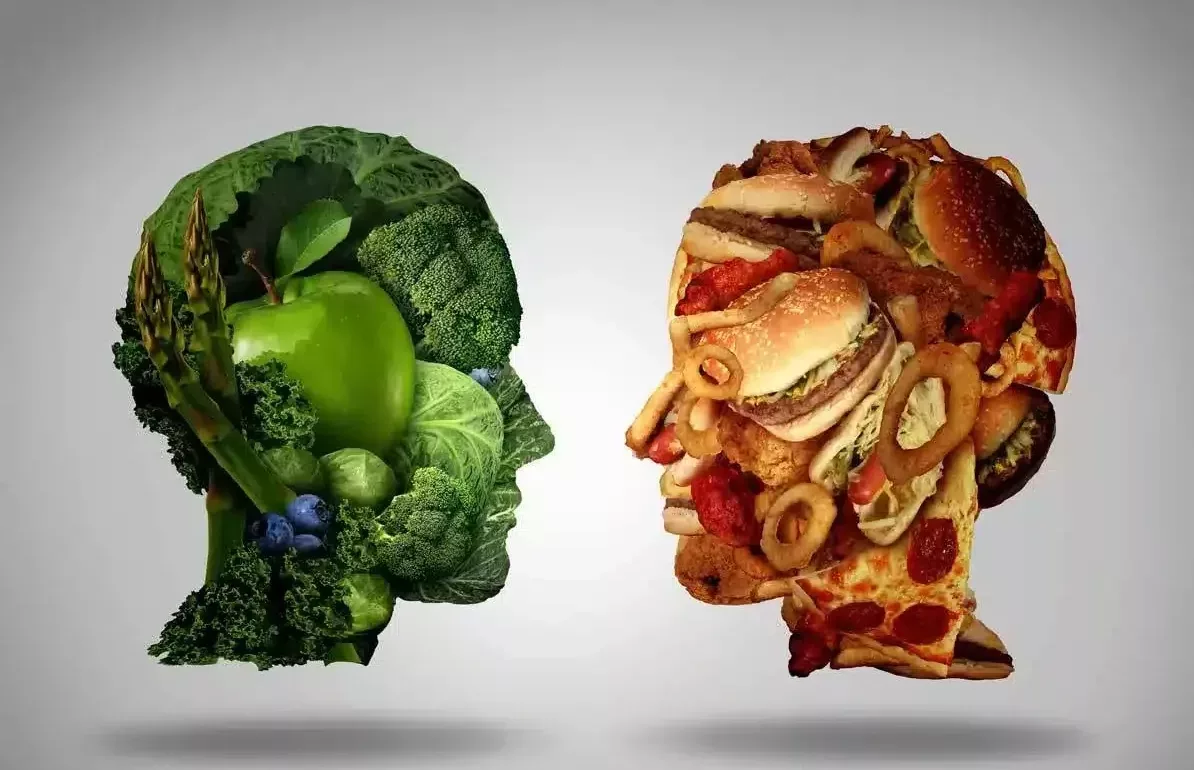When people ask me for practical tips on what to eat to lose weight and maintain good body weight, I often surprise them by first focusing on their mental nutrition. What’s that? Let me explain by answering some common questions and offering some practical tips on getting your mind in a good place to help you lose weight and pursue optimal health.
- Why is it so hard to eat healthy when we know we should?
- What is our mindset toward food?
- Why do we resist positive mindset changes towards food?
- How do we change our mindset towards food?
- What questions do we need to ask?
- Going further than simply losing a few pounds

Why is it so hard to eat healthy when we know we should?
While there are most likely a multitude of factors involved, a big part of the problem lies with our mindset towards food.
What is our mindset toward food?
What is food to you? While all of us know that food is required to maintain the health of our bodies, we tend to place more on food than what it can offer. We often treat food as a source of fulfillment and completion instead of as a source of fuel and enjoyment.
Food is certainly more than just nutrition for our bodies. There is a sensual element to food; things like, the smell of freshly baked bread, a beautifully arranged table full of holiday foods, and the combination of different tastes and textures. All these elements combine to make many of our mealtimes a rich experience.
It is tempting, however, to take our enjoyment of food a step further than we should. It is way too easy to look to food to bring us a level of fulfillment that only deep relationships can offer.
If we truly want to pursue optimal physical health, we must change how we relate to food. And that change in relationship is one that we resist. This resistance is the core of why it’s so hard to eat healthy foods when we know we should.
Why do we resist positive mindset changes towards food?
We resist it because our unhealthy relationship with fat and sugar-laden foods, while harmful to us over the long haul, helps us to some degree. As a result, we resist giving up the role that food is playing in our lives.
Food comforts us, provides emotional support, reduces stress, and numbs our anxiety. And we need comfort, support, and things that can reduce stress in our lives. It’s not wrong to want and need these things. These are legitimate needs that food seems to address. This is why it is so hard to give up this role that unhealthy food plays in our lives.
Rich desserts and buffets of food promise so much, but ultimately offer so little (yes, they are called, “empty calories,” for a reason). While food is great for nourishment, it is a poor source of fulfillment. We place legitimate needs and demands upon food that it simply cannot meet.
If you truly want to eat healthy, you have to be willing to ask yourself if you are ready to change the terms of your relationship with food. And changing that relationship won’t come easy.

How do we change our mindset towards food?
Changing what “almost works” as one addiction specialist writes, is not easy. My ongoing conversations with my clients are almost never about food or calorie intake or just body fat percentage. Dialing in their nutrition is easy compared to addressing the deeper issues of their relationship with food.
We talk about their mindset. This includes things like the stress in their lives, their relationships, and how they are using food to quell anxiety and numb their emotions. It’s these elements of their lives that make the biggest impact on what they eat. This sets them up for healthier eating habits and sustainable weight loss rather than just rapid weight loss due to a low-calorie diet that is unsustainable.
So if you want to lose weight and also get and stay healthy, ask yourself a different set of questions.

What questions do we need to ask?
We typically ask “What?” when we need to ask “Who and Why?” Instead of questions like, “What should I put in my refrigerator and pantry? What should I eat?”, ask yourself questions such as,
- Who can support me on my journey to better health?
- Who might want to get healthy with me?
- Who can help hold me accountable?
- Why do I want to get healthy?
- Why do I have an unhealthy relationship with food?
Going further than simply losing a few pounds
Taking the time to act on your answers to these questions will provide you with the support, accountability, and cognitive retraining you need to create lasting good health. This will take you a lot further than simply following a diet plan to lose a few pounds or exercise weight management. It will instead set you up for steady weight loss and will help you create a level of health that you may have thought was no longer possible.

If this approach makes sense to you but you’re unsure who might walk alongside you in this, I invite you to reach out for an exploratory conversation. I’m more than happy to discuss your goals and find the best way we can help. Alternatively, feel free to drop by Zion and talk to one of Zion’s experts in person. We would love the chance to show you what we can do for your health and weight loss goals!
—
Author Bio
Brian Owen is a health and wellness coach in Katy, TX. Prior to becoming a health
coach, he served for 12 years as a pastor in Katy, TX, and 20 years as a chaplain to
university students. He brings his life-long passion
for transformation into the lives of his clients, helping them not only lose weight
but become the best version of themselves. He saw his own health significantly
improve after losing 30 lbs and learning how to maintain
a healthy weight.
If you’d like to learn more about his health program, click here to fill out his intake form and set up a free health
assessment.
You can also email him with questions at gethealthy@coachbrianowen.com or reach him
by phone at 281-638-1821.

